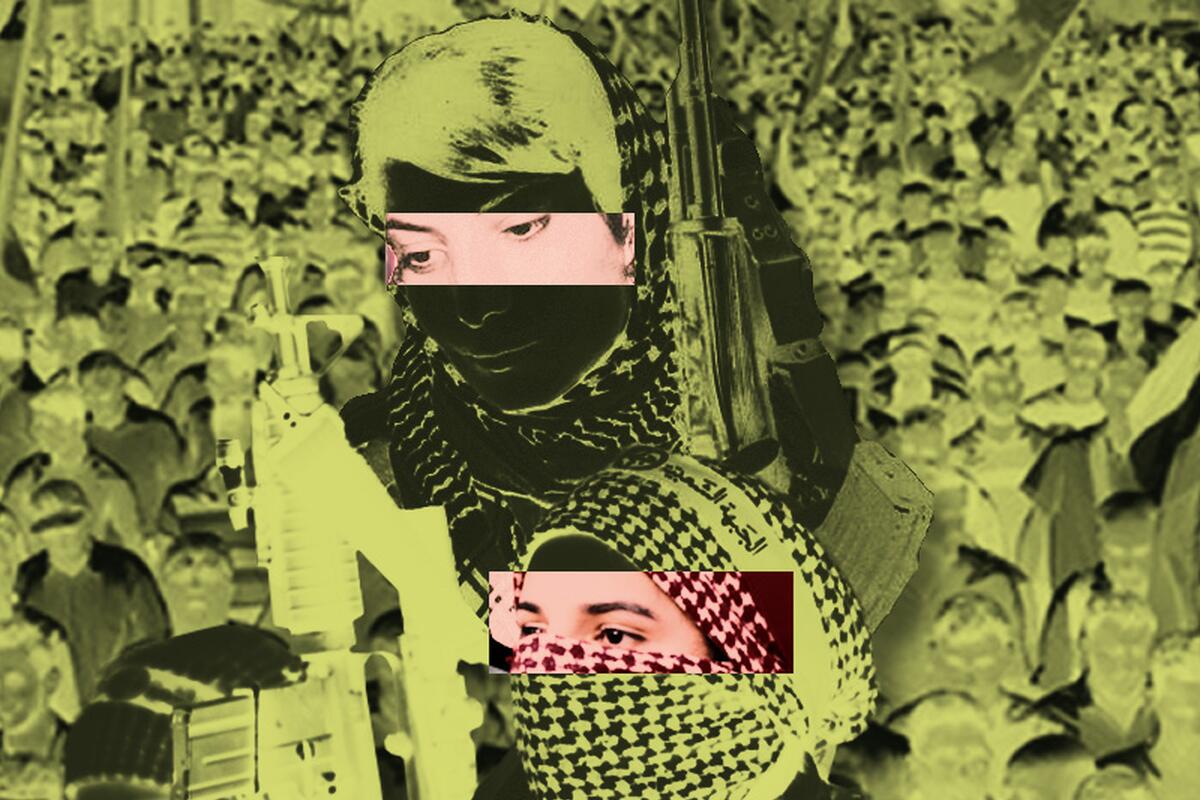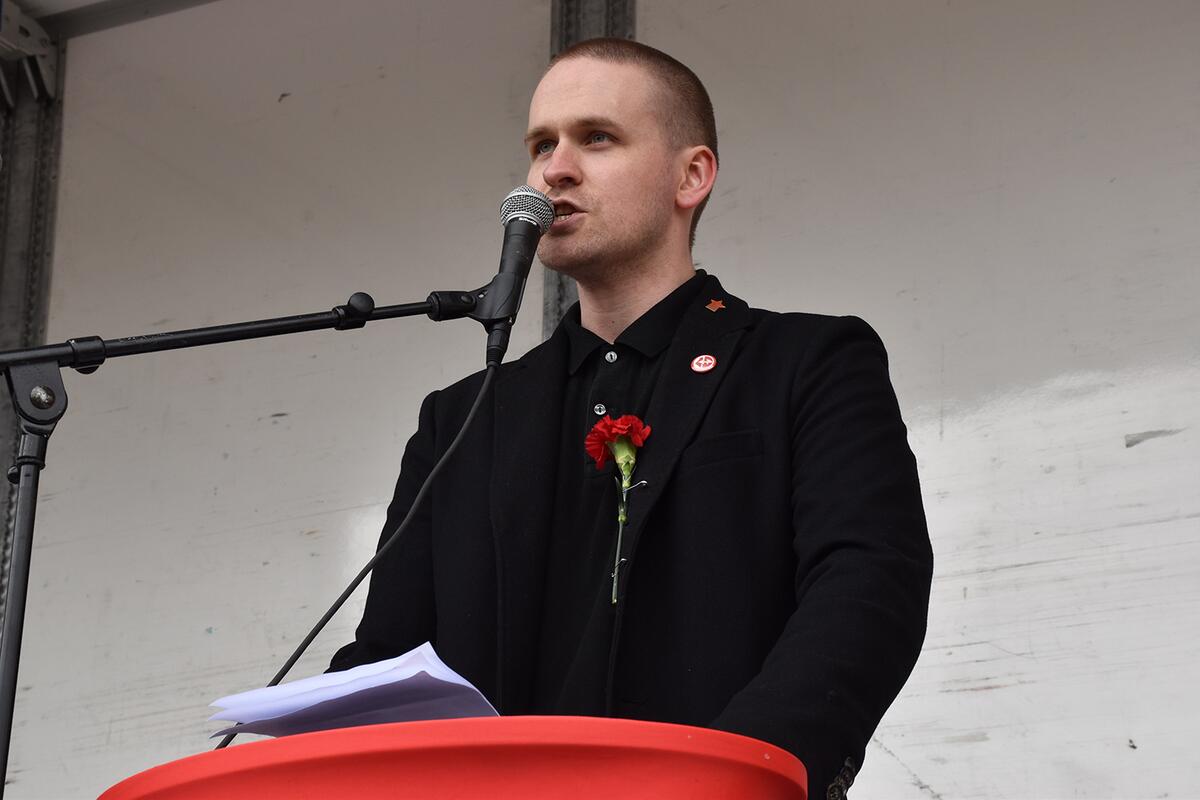Background
1. What happened, regardless of the outcome, is a natural consequence of a deep political crisis that has developed within the Russian ruling class amid a stalemate in the war in Ukraine.
2. As we have often emphasised (https://rksmb.org/rksmb/official/revkomsomol-protiv-imperialisticheskogo-peredela-ukrainy/), the war in Ukraine is not the defence of the Ukrainian people from the "Moscow barbarians " and is not the defence of the people of Donbass from the “Ukrofascists ", but the clash of the imperialist interests of the West, on the one hand, and Russia, on the other. Russia gets tacit support in this confrontation from a group of countries united behind Chinese capital – a fact which proves the global rather than regional nature of this conflict.
3. From the very beginning, the so-called "special military operation " did not run as was planned by the Russian leaders. Russia has entered the war weakened.
A particular reason for the weakness of Russia is the inconsistency of the Russian bourgeoisie, which until recently tried to negotiate with its "Western partners " on the division of the spheres of influence at the expense of Donbass inhabitants’ lives. We must remember that it was Russia that stopped the offensive of the Donbass militias against the reactionary regime that arose as a result of a right-wing coup in Kiev in 2014.
It was Russia that pushed through the Minsk agreements, which left the Donbass defenceless against the Armed Forces of Ukraine. As a result, the ruling elite of Russia itself allowed Western imperialism to prepare its Ukrainian puppets for war as best as possible. The price of such Kremlin’s policy is thousands and thousands of ruined lives of working people on both sides.
The fundamental reason for the weakness of Russia is the economic and social policy that the Russian bourgeoisie has been steadily pursuing for all the decades since the fall of the USSR. The Yeltsin and Putin eras differ from each other significantly in the external features (rhetoric, symbols, foreign policy statements, etc.).
Since the beginning of the 21st century, the ruling class of Russia has tried and is still trying to cover its goals up with patriotic rhetoric and references to the Great Patriotic War – sacred to the Soviet people. However, at its core, this is the same power of capital that parasitises on the natural and human resources of Russia.
The bourgeoisie under Putin is the same class that was formed as a result of the controlled dismantling of the Soviet economy, which is a symbiosis of the repressive machine created by Yeltsin and the oligarchy. Under both Yeltsin and Putin the impoverishment and even extinction of the Russian people, the degradation of the education system, the plunder of natural resources, and the destruction of industry (including the military) – all continue.
Suffice it to say that even in 2023, the bankruptcy of Russian military enterprises continued. The Kremlin propagandists are trying to drape the real state of affairs with bravura rhetoric, but the fact remains: Putin is Yeltsin’s faithful disciple in the robbery and destruction of our Motherland. And this, of course, could not but lead to the deplorable state of most public institutions, including the Armed Forces.
4. The Wagner private military company emerged as a tool of Russian imperialism that effectively serves its foreign interests in cases where the official use of military force would be impossible. The basis of Wagner was the Slavic Corps PMC, created in 2013 by Russian businessmen allegedly to "protect fields and oil pipelines " in Syria, in fact – to participate in the war in this country.
Later, PMC Wagner defended the interests of Russian imperialism in Libya and the Central African Republic. PMC Wagner consists of the well-equipped and trained mercenaries. Consequently, when the course of the war has revealed the weakness and low motivation of the Russian military personnel, the ruling regime was forced to resort to professional mercenaries.
PMC Wagner has become one of the most combat-ready units on the Russian side, which fuelled the ambitions of its owner. It is worth noting that the very name of this PMC, its "Blood, Honour, Motherland " motto, the repeated public statements of their representatives testify to the ultra- right views of the founders and many common soldiers.
We emphasise that PMC Wagner was created by the Russian ruling class and was its tool for a long time, while Yevgeny Prigozhin himself is a big businessman who personally knows Vladimir Putin and has certain privileges thanks to this acquaintance.
5. Getting involved in a military adventure, the Russian bourgeoisie still showed inconsistency, tried to manoeuvre and looked for ways to reach “an agreement”. This can be evidenced by the numerous statements about "red lines " that did not entail any consequences and the absence of strikes against the military-political leadership of the enemy. The price of such a policy is fruitless sacrifices. All this did not go unnoticed.
Conclusions
1. The unfortunate course of the war in Ukraine for Russia has strengthened the centrifugal tendencies within the ruling class. One part of the Russian oligarchs hastened to gain distance from the Kremlin and show loyalty to the West. The other part still follows the president. The third part is dissatisfied with the Kremlin’s cautious, half-hearted policy and wants to see drastic measures.
2. The rebellion of Prigozhin’s PMC reflects the interests of a certain group of the bourgeoisie, which is aimed at emergency measures for the sake of a decisive turning point in the war. This requires the immediate establishment of a fascist dictatorship, i.e. direct terrorist dictatorship of the most chauvinistic and reactionary group of big financial capital.
3. At the same time, the behaviour of Prigozhin himself, his criticism of the goals and methods of the so-called “special operation” make us suggest that this group is also ready to participate in bargaining with the West and perhaps offer them more favourable terms for a compromise. It is significant that the rebellion is taking place amid an unprecedented increase of NATO military presence along the western border of Russia and amid constant threats to use the nuclear weapons.
4. However, the current ruling regime in Russia is also moving towards fascism, which we have repeatedly warned about. In other words, both sides are interested in establishing a fascist dictatorship. The only difference is who, when and by what means will lead Russia to the final establishment of fascism – be it fascism "from above " established by the current regime, clumsy and burdened by a corrupt bureaucratic apparatus, or fascism with the elements of anarchy performed by PMC thugs.
5. Thus, the military conflict that has begun in Russia is neither a "civil war " nor a "revolution ", but rather a struggle between two reactionary groups of the Russian bourgeoisie striving for fascism. Both sides of this conflict bring suffering and death to the working people. Both sides, with all their contradictions, are much closer to each other than to the peoples of Russia.
6. The labour movement in the country is still weak. The communists are also weak and fragmented. That ideological, political, organisational work on consolidation, which is carriedimmedi out by the RKSM(b) together with other communist groups, is still far from complete.
7. The key tasks to the communists in these conditions are:
- In any case, do not support any of the groupings of the bourgeoisie that have grappled with each other. To explain the pernicious effects of such support to the workers and the youth. To explain that, regardless of the winner in this fight, the result for ordinary citizens will be worsening social security and further crackdown.
- To strengthen the ties with the working class and with the military on an everyday basis. To spread the propaganda among them tirelessly, to explain the class goals and the meaning of what is happening. In the course of the propaganda work, to exercise caution, taking into account that now, more than ever, the Russian Federation is very close to the conditions of a fascist dictatorship.
- To promote self-organisation of the workers in factories, to promote the creation of newly- made workers’ organisations before they are outlawed.
- In the areas that are in the war zone or nearby, to encourage the workers to form self- defence units to maintain order.
The crucial class battles are yet to come.
Update as for the evening of June 24, 2023
The media report that the Kremlin and PMC Wagner have reached an agreement through the mediation of Alexander Lukashenko, President of Belarus. Prigozhin retroactively called his actions a "march of justice " and announced that he would turn troops back. The rocket attack on the Wagner camps, which allegedly took place on the evening of June 23, has already been forgotten.
Does this ever mean that the story is over? No. The contradictions that became the source of this rebellion have not been eliminated. The reached agreements are only a fragile truce before a new struggle between various factions of the ruling class of Russia. When and in what form they will proceed – we do not know, but the reasons for what happened we have stated above.
The only way to put an end to Russia’s slide into a national catastrophe is a socialist revolution led by a strong, organised, ideologically armed working class.
This is a republication of the "Statement of the Central Committee of RKSM(b) on the rebellion of PMC Wagner", with the russian original title:"О мятеже Пригожина и ЧВК «Вагнер»". The untranslated statement may be found here.





